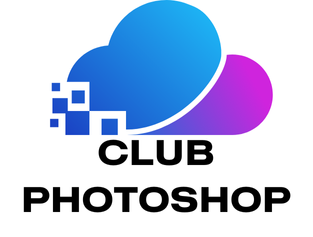Harnessing mockup APIs transforms how developers prototype and test applications. By simulating real endpoints, you reduce waiting times and improve design accuracy. This approach speeds development cycles and enhances creativity, allowing you to experiment freely without backend constraints. Discover how mastering mockup API tools empowers you to unlock your full creative potential and build robust, innovative solutions efficiently.
Essential Tools and Solutions for Mockup API Integration, Prototyping, and Testing
The modern development cycle demands speed, automation, and flexibility—qualities best supported by solutions like mockup API. These APIs enable teams to quickly simulate endpoints for prototyping, automate mockup generation, and streamline workflows for testing across a range of digital products. Whether focusing on rest API for mockup generation or exploring how to create tailored product previews via API, technical needs are met with scalable, automated processes that reduce manual effort and error.
Topic to read : Essential Strategies for Safeguarding Your Single Sign-On (SSO) Implementation with SAML
Mockup APIs are embraced in industries such as print-on-demand, creative agencies, and outdoor media. Print-on-demand businesses, for instance, rely on rapid and dynamic product visualization to stay competitive, using API-driven workflow automation for instant renderings of custom merchandise. Creative agencies benefit from integrated mockup generators that produce consistent branding assets, while billboard designers leverage these platforms for realistic outdoor visuals without the delays of manual design iterations.
Teams enjoy further advantages:
Also to discover : What techniques can be used to enhance the security of a WordPress site?
- Integration with tools like Photoshop.
- Pricing models that support rapid onboarding and testing.
- Flexible API endpoints and customizable generation for diverse products.
This technological backbone ensures that companies innovate and test rapidly, achieving both efficiency and high-quality outcomes.
Comprehensive Reviews of Leading Mockup API Tools
Employing api tools for mockup creation can transform how teams develop and test digital products. Mockoon stands out as an offline-first, open-source solution ideal for users seeking security and privacy. It enables rapid deployment of mock REST APIs without requiring online accounts, supporting advanced customization through features like HTTP request recording, proxying, and dynamic templating. Team collaboration excels via Mockoon Cloud, which supports cloud deployment and real-time sharing—making complex, cross-platform workflows streamlined. Mockoon is designed for integration with diverse platforms using standard-compliant endpoints, and its CLI and Docker options cater to scalable teams and automation needs.
Mediamodifier is among the best mockup generator apis for automating visual content. It automates mockup creation for industries such as print-on-demand, and its printful mockup api features deliver quick, scalable results. Mediamodifier blends seamlessly with existing software, enabling users to customize mockups via api, render videos, and even analyze design performance with its heatmap features. Its usage-based pricing and accessible documentation make high-quality content production straightforward and efficient.
Finally, Mocki empowers developers with robust api mockup tool comparison options. It accelerates both frontend and backend development, allows for error simulation, and supports microservices testing. By supporting dynamic responses and automation, Mocki enhances rapid prototyping and scalability—making it a reliable api tool for mockup creation in 2025.
Step-by-Step Guide to Setting Up and Using Mockup APIs
Precision in setting up a mockup api starts with selecting reliable platforms such as Mockoon, Mocki, or Mediamodifier. Begin by defining clear api endpoints for mockup using each platform’s intuitive interface. Upload endpoint definitions, then assign sample responses, making the most of dynamic templating for adaptability.
Consulting thorough mockup api user guides ensures alignment with best practices. Focus on how to leverage each tool’s built-in features—like HTTP request recording and error simulation—while verifying your endpoints reflect desired product or design scenarios. For example, tools like Mocki permit both YAML-based and web interface configurations, streamlining project onboarding and supporting local or cloud deployments.
Effective mockup api for product designers means enabling flexibility; structure your endpoints to showcase various product states, and use customizable mock data for faster prototyping. Integrating mockup api into platforms—such as e-commerce solutions or CI/CD pipelines—requires mapping endpoints to the workflow, automating product previews, and ensuring test data mirrors live use cases. Prioritize keeping mockup api documentation importance front and center, so collaborators maintain clarity. This approach minimizes bottlenecks and supports seamless team collaboration.
Advanced Practices and Considerations for Mockup API Deployment
Scalable mockup solutions via API require robust planning and adaptive architecture. Teams aiming for seamless mockup automation benefit from structuring their workflows to support concurrent requests, with rate limits adjusted to avoid bottlenecks. Mockup API scalability challenges often arise as project volume increases; thoughtful load balancing and distributed deployments help maintain consistent mockup API speed and performance.
Optimizing mockup API requests starts with using efficient data formats and reducing payload sizes. For large-scale automation, batching multiple designs within single requests cuts down on network overhead. Real-world api mockup workflow examples frequently involve automating product previews across e-commerce platforms, allowing designers and marketing teams to accelerate visual content updates without manual intervention.
Security is a foundational concern. Enabling mockup API security features—such as OAuth, end-to-end encryption, and granular access controls—protects intellectual property and personal data during integration. Licensing and sustainability are gaining focus: some platforms adopt eco-friendly mockup API solutions or transparent mockup API licensing to meet modern compliance standards.
Mastering best practices for mockup API—such as monitoring latency, automating alerting on failures, and maintaining clear documentation—empowers development teams to expand creative projects reliably. Automated scaling and reliable performance ensure seamless mockup automation, even as business needs evolve.











